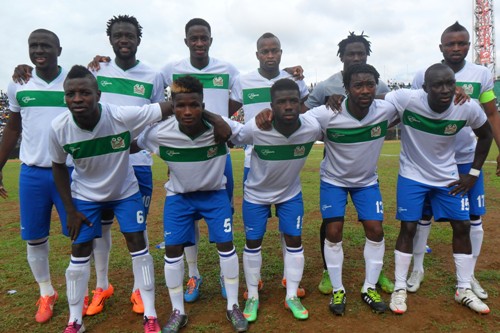By Hassan Osman Kargbo
The Sierra Leone National Team, commonly known as Leone Stars, has long been a symbol of hope and pride for the nation. Over the years, the players have showcased talent that resonates with the spirit of its people.
However, recent disappointments, particularly the team’s failure to qualify for the Africa Cup of Nations (AFCON), have triggered a wave of dissatisfaction among fans, analysts, and former players alike.
Recently, the former team manager of Leone Stars, Babadi Kamara, voiced his concerns, shedding light on myriad issues plaguing Leone Stars.
He stated in a 98.1 Good Morning Salone program that the national team’s shortcomings go beyond mere performance on the pitch, and reflect deep-rooted problems within the administration of football in Sierra Leone. The inability to engage in proper player scouting, inadequate investment in grassroots development, and the lack of a coherent long-term strategy are just a few of the challenges he highlighted.
Kamara noted that football is not merely about talent, but structured development and a strategic approach to harness talent effectively.
One of the critical issues impacting Leone Stars has been the management of players and their mental and physical well-being. Players often arrive for national duty without adequate preparation, having faced different challenges in their respective leagues. A unified training regime and a clear roadmap for player fitness are essential.
Instead of fostering a cohesive environment, the lack of a robust training regimen has often left players ill-prepared to compete at the highest level.
Additionally, the former manager lamented the poor psychological support for players. The pressures of representing one’s nation can be overwhelming, and without proper mental health resources, players may struggle to perform under pressure.
The narrative surrounding Leone Stars is often laden with expectations that can be daunting for young athletes. Addressing mental health in sports should be a priority, as it plays a pivotal role in enhancing performance and team cohesion.
Another poignant issue raised was the need for better coordination between the national football federation and clubs. Many players find themselves caught in a web of commitments that can lead to burnout or injuries. A structured calendar that accommodates national fixtures without compromising club responsibilities would enhance performance levels. Such an alignment is essential, particularly when considering the increasingly competitive nature of football in Africa, where countries are stepping up their investment in infrastructure and talent development.
Moreover, the former manager expressed his dissatisfaction with the lack of investment in local leagues. A flourishing domestic league is critical for national team success, as it helps in nurturing local talent and provides a competitive environment for players to hone their skills.
The government’s role in supporting local clubs through funding and infrastructure development cannot be overstated. Without a vibrant league, players are often forced to look abroad, leading to potential gaps in skill and experience when they return to the national setup.
To conclude, the recent AFCON qualification failure is a symptom of broader issues within Sierra Leonean football. The former team manager’s criticisms highlight the urgent need for a fundamental rethink in how football is managed and developed in the nation. Now is time for stakeholders, including the government, football federations, and clubs, to come together to create a sustainable framework that nurtures local talent and instills a winning mentality in the Leone Stars team. Only through unity and shared vision can Sierra Leone hope to reinvigorate its footballing fortunes and make a lasting impact on the continental stage.










